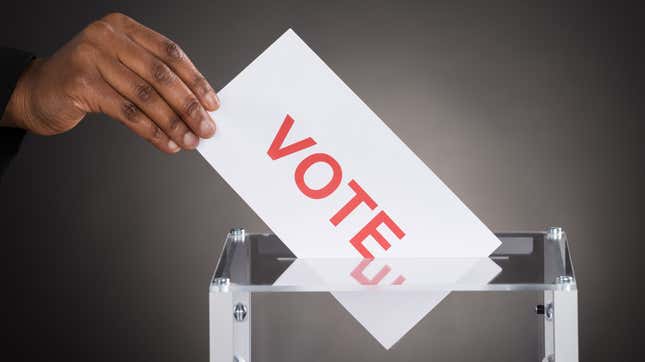
Some 80 percent of Florida’s ex-felons eligible to vote will be barred from registering under a new state law, including a disproportionate number of blacks, despite a clear majority of voters approving a change to the state’s constitution meant to restore their voting rights.
That’s the finding of a preliminary study done by a University of Florida professor on behalf of civil rights groups suing to overturn the state law that critics say imposes a poll tax on felons, the Palm Beach Post reports.
In November 2018, 65 percent of Florida voters approved an amendment to the state’s constitution that restored the right to vote to all those who had been convicted of felonies, except those found guilty of sex offenses or murder.
But by January of this year, ex-felons’ hopes of enfranchisement were dashed when Florida’s governor signed into law state Senate Bill 7066. The new law required felons to have paid all court fees and fines before they would be able to register for their newly acquired right to vote.
The new law will not only stop approximately 80 percent of felons overall from voting, the study by political science professor Daniel A. Smith found, but it will have a disparate impact on black folks, the Post reports.
While both white and black felons owed between $500 and $5,000, the study found, “white felons were nearly twice as likely as black felons to owe no fines, fees or court-ordered restitution,” the Post reports:
“In my opinion, it is clear ... black individuals who have otherwise met all the terms of their felony convictions are significantly less likely to be able to gain voting rights under SB 7066, as compared to similar white individuals,” Smith wrote.
Civil rights groups, including the American Civil Liberties Union of Florida and the NAACP Legal Defense and Educational Fund, submitted the study as part of their lawsuit to overturn the new law.
The suit argues the requirement of payment of fines in order to register to vote constitutes an illegal, unconstitutional (and racist) poll tax.
the Legislature’s law violate’s the U.S. Constitution’s clause guaranteeing equal protection under the law. They also argue it violates the 24th Amendment, which prohibits the Jim Crow era practice of imposing poll taxes to prevent or discourage African Americans from voting.
While drawing up the bill to force felons to pay up before they can vote, Republican state Rep. Jamie Grant pushed back against the notion that forcing people who had once committed a crime to pay off fines in order to vote was a poll tax, saying, according to WSFU:
“The historical atrocity of a poll tax was something that said somebody who didn’t commit a crime, someone who did nothing wrong, somebody who was just poor or a minority was denied access to the ballot box. That is inherently different than somebody who committed a felony convicted through due process.”
Perhaps given the historic racial disparities in over-policing, over-criminalization and mass incarceration impacting the black community, such a distinction has little meaning?
But in any case, advocates say the will of Floridians was clear in passing the constitutional amendment—as is the disparate racial impact of the new law.
As Micah Kubic, executive director of the ACLU of Florida, told the Post:
the findings are “shocking, not that they are surprising.”
He added: “We had been saying that the bill would be much more sweeping in its impact than the advocates claimed.